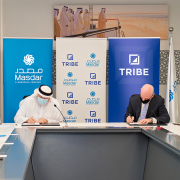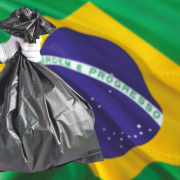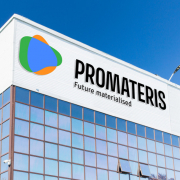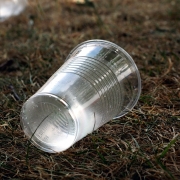Nextek’s COtooCLEAN Secures Funding from UK Research and Innovation
The COtooCLEAN project, led by Nextek Ltd to produce food-grade recyclate from polyolefin film waste, has secured funding from UK Research and Innovation (UKRI). The UKRI’s Smart Sustainable Plastic Packaging challenge, which supports the achievement of the UK Plastics Pact, rewards innovative projects focusing on reuse and recycling of plastic packaging.
Polyolefin (LDPE, LLDPE,HDPE,PP) films, which are commonly used for packaging both edible and non-edible goods, play a vital part in protecting and extending the shelf life of many foods. To date, food safe post consumer polyolefin films are missing from the recycling stream as there has been no effective decontamination technology to turn them back into food-grade films.
COtooCLEAN is a multi-participant project that aims to fill this gap with a unique commercial process that can be integrated into mechanical recycling operations. This innovative process targets high-quality film applications to ensure that recycling targets can be met.
With the commercial and technical capabilities of its partners* Unilever, Amcor, Viridor, Allied Bakeries, Suprex, University of Nottingham, School of Chemistry and BioComposites Centre, Bangor University, COtooCLEAN is a disruptive waterless cleaning process for polyolefin films. Based on low-pressure super-critical CO2 (scCO2) combined with green co-solvents this process can, in a single step, remove oils, fats and printing inks and effectively decontaminate polyolefin films under EFSA Challenge Test conditions back to food contact levels.
Currently the industrial decontamination of post-consumer polyolefin films is performed using a mixture of aqueous or organic solvent washing, drying and thermal desorption. However, these processes have a high cost both in terms of the energy required and their environmental impact and don’t reach food-grade compliance.
ScCO2, on the other hand, is a non-toxic, non-flammable, non-corrosive solvent that can efficiently remove potential contaminants that might be found in films. Its potential to recycle film back to food-grade quality will not only facilitate film recycling, offering a new PCR materials source, but will also facilitate significant reductions in waste to landfill, displacement of virgin resin and significant savings in resources and reductions in carbon emissions and water usage.
ScCO2 is widely used in the extraction of food flavours and components, such as helping to remove caffeine from coffee. Impressively, a simple phase change can isolate dissolved contaminants and free the CO2 for re-use as a solvent once again. In this way it does not produce aqueous waste containing impurities and contaminants, or decontamination solvents.
A commercialised COtooCLEAN process has the potential to provide a unique technology that will fill the gap in recycling food-grade films.
*Viridor Ltd is one of the UK’s leading recycling, resource and waste management companies. Viridor will be the collector and recycler of films and potential plant builder for the scale up.
Unilever is one of the world’s leading suppliers of Beauty & Personal Care, Home Care, and Foods & Refreshment products. They will support the project with testing and analysis to validate the resulting materials for consumer goods packaging applications.
Allied Bakeries are one of the UK’s biggest bread makers, selling 1.6 billion loaves in the UK each year and 90% of these are packed in polyethylene. They will evaluate the resulting recycled material with the involvement of their packaging manufacturer and will supply films for de-inking and test recycled films for food-grade status.
Amcor is a global leader in developing and producing responsible packaging for food, beverage, pharmaceutical, medical, home- and personal-care, and other products. Amcor works with leading companies around the world to protect their products and the people who rely on them, differentiate brands, and improve supply chains through a range of flexible and rigid packaging, specialty cartons, closures, and services. The company is focused on making packaging that is increasingly light-weighted, recyclable and reusable, and made using an increasing amount of recycled content.
University of Nottingham, School of Chemistry (Professor Steve Howdle) will conduct the majority of the optimisation research in the early work packages which will lead to scale up. The UoN team is skilled in sustainability, polymer chemistry, the use of supercritical fluids, analytical chemistry and have experience in the commercialisation of academic research.
Biocomposites Centre (BC) has invested in the most versatile laboratory and pilot-scale CO2 equipment in the UK. They will focus on LCA and process optimisation as they have extensive analytical facilities to assist with characterisation of materials.
Suprex, a joint venture between Phytovation Ltd and Bangor University, specialises in the development of applications of supercritical CO2 and will take a lead in equipment design and safe operation and construction and assist in large scale trials of the post consumer films.
Source: Nextek (UK, March 15, 2022)








